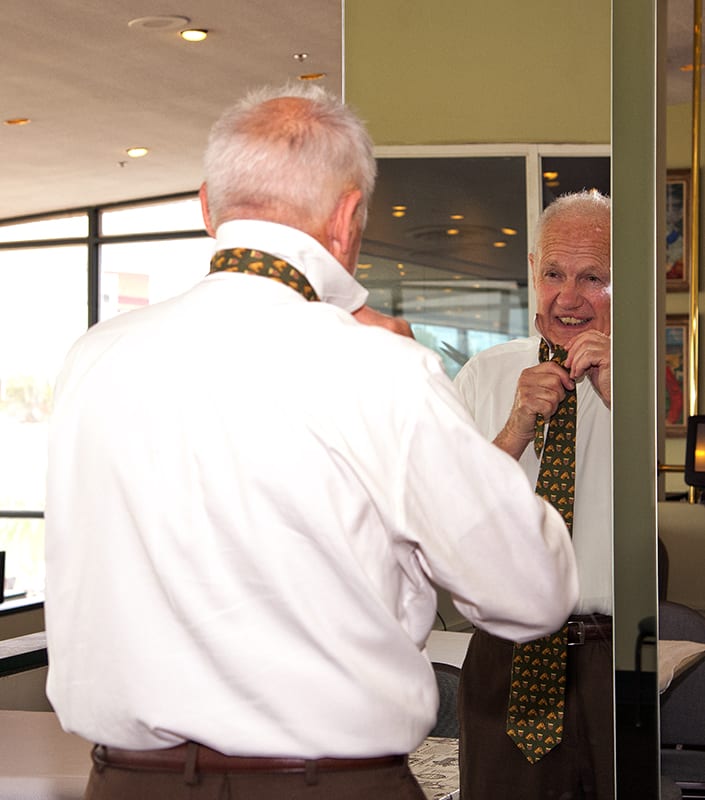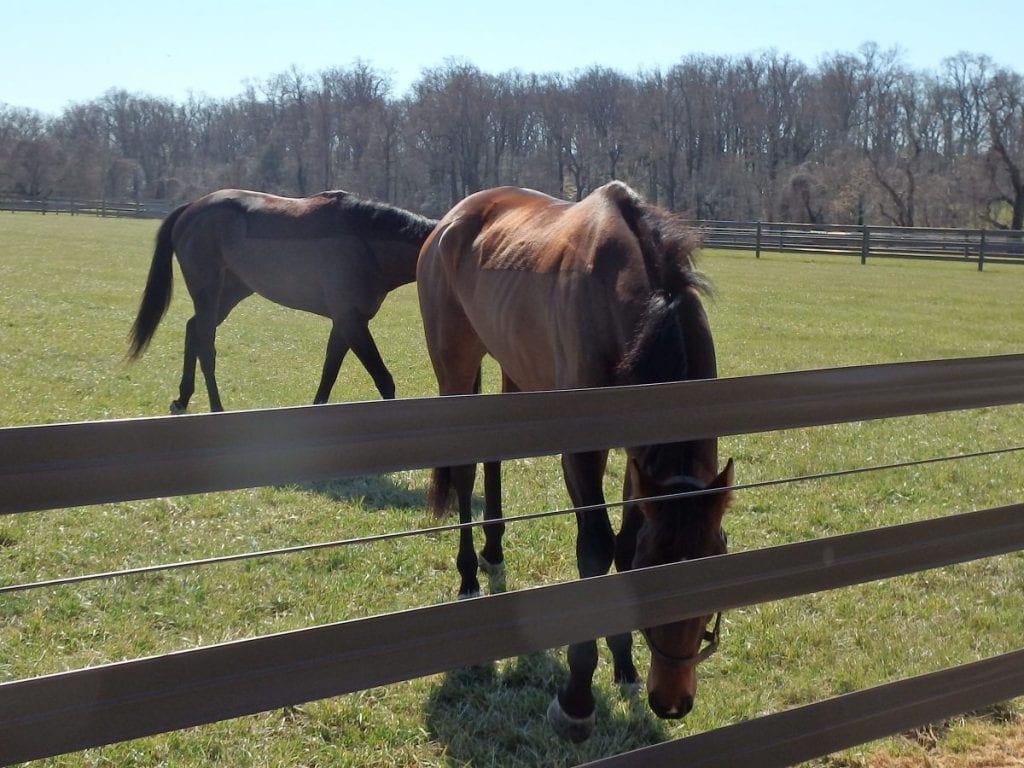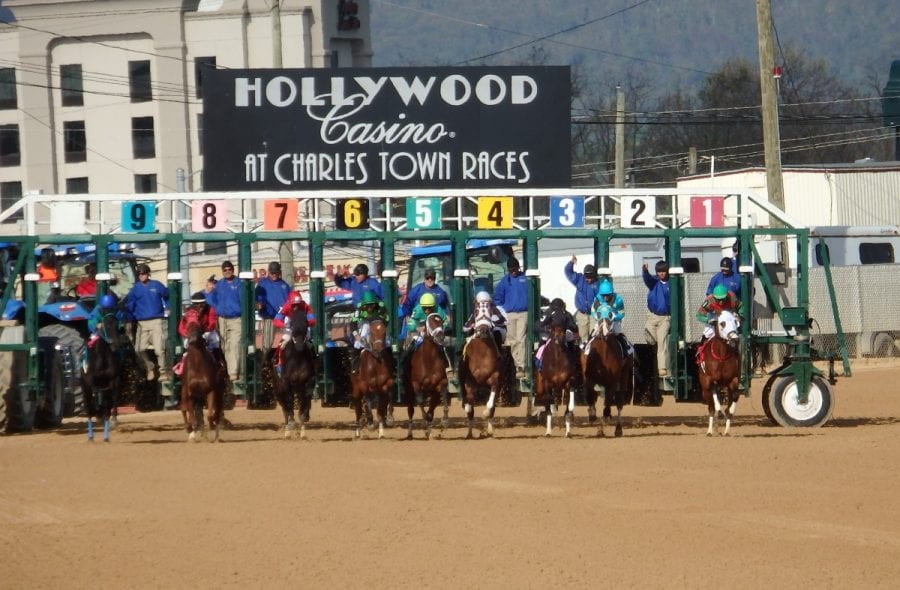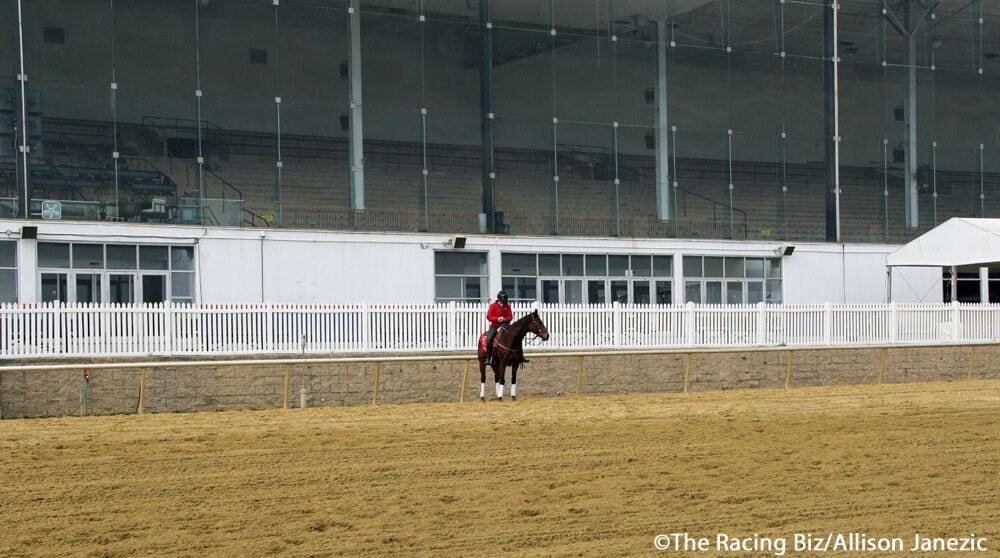[et_pb_section fb_built=”1″ _builder_version=”3.23.1″][et_pb_row _builder_version=”3.25″ column_structure=”2_5,3_5″][et_pb_column type=”2_5″ _builder_version=”3.25″ custom_padding=”|||” custom_padding__hover=”|||”][et_pb_text _builder_version=”3.27.4″]
![]()
[/et_pb_text][/et_pb_column][et_pb_column type=”3_5″ _builder_version=”3.25″ custom_padding=”|||” custom_padding__hover=”|||”][et_pb_text _builder_version=”3.27.4″]
Football and racing fans enjoy the 2015 Sam Huff Hall of Fame Charity Breakfast. Photo courtesy of West Virginia Breeders Classics.
It’s no secret among those who play that horse racing can be a complex game to understand. In an era where horseplayers have more data than ever to sift through, and the gambling options are innumerable, it’s more important than ever to educate racing fans about the ins and outs of the game.
A lot of fan education focuses on the basics: how to read past performances, what different types of races mean, types of bets, and so forth.
[/et_pb_text][et_pb_text _builder_version=”3.27.4″]
[/et_pb_text][et_pb_text admin_label=”2nd part of story” _builder_version=”4.2.2″ hover_enabled=”0″]Yet there’s one essential piece largely missing from the puzzle: comprehensive education, going deeper than just the fundamentals.
What do I mean by that?[/et_pb_text][et_pb_text _builder_version=”3.27.4″]
[/et_pb_text][et_pb_text admin_label=”3rd part of story” _builder_version=”4.2.2″ hover_enabled=”0″]
Take a look at another popular form of gambling: Texas hold ‘em poker. A quick look at Youtube will find numerous channels breaking down certain hands, strategies in certain situations, and just about anything else that you would want covered. Some poker pros have even taken to creating master classes, covering all they know about the game. Go to your local bookstore, and you’ll find plenty of books about poker. If you want to get into poker, and really be able to know the game, there’s a treasure trove of resources.
It’s not quite the same in racing. There isn’t much of a “master class-type” category in racing. There are videos that go pretty in-depth about certain races, but those lessons don’t always carry over to other races. There are numerous handicapping books out there, but you won’t find many in the stores. Videos about betting strategy, bankroll management, and ticket construction — things that are just as important as knowing how to handicap — border on non-existent.
It’s true that tracks have gotten more on the ball with fan education in recent years. Saratoga has its “Bets Squad” stations, at which I worked in 2017 and 2018. Keeneland has “Betologists” stationed all over the track. Pennsylvania tracks have “Wager Warriors” for big race days.
[/et_pb_text][et_pb_text _builder_version=”3.27.4″]
[/et_pb_text][et_pb_text admin_label=”4th part of story” _builder_version=”4.2.2″ hover_enabled=”0″]
All of these are excellent programs, but more often than not, they’re geared towards novices, and only on-track. Suppose someone wants to get beyond the basics of handicapping once he or she gets home. Where are they to turn?
Ideally, all tracks would have three different components to their fan education. The first would be the aforementioned on-track stations: places where people can go for quick questions, or brief tutorials on the basics.
Second, on-track seminars designed to go more in-depth on certain topics could help bridge the gap. Canterbury Park has the right idea with Canterbury College: a five-week program where each class gets more in-depth than the next.
Third, each track ought to dedicated a section of its to education, along with videos catered for different levels of experience. That way, people can gain experience and knowledge without actually having to go to the track.
For the racing industry to survive and thrive, it stands to reason that it would want to help potential new customers know all they can about the sport. It’s time for the sport to step it up and take education to the next level.
[/et_pb_text][/et_pb_column][/et_pb_row][et_pb_row _builder_version=”3.26.3″][et_pb_column type=”4_4″ _builder_version=”3.26.3″][et_pb_text _builder_version=”4.0.6″]
LATEST OPINIONS
[/et_pb_text][et_pb_blog fullwidth=”off” posts_number=”6″ include_categories=”28″ show_author=”off” show_date=”off” show_categories=”off” show_pagination=”off” use_overlay=”on” overlay_icon_color=”#0C71C3″ hover_overlay_color=”#EDF000″ hover_icon=”%%45%%” _builder_version=”4.0.6″][/et_pb_blog][/et_pb_column][/et_pb_row][/et_pb_section]














